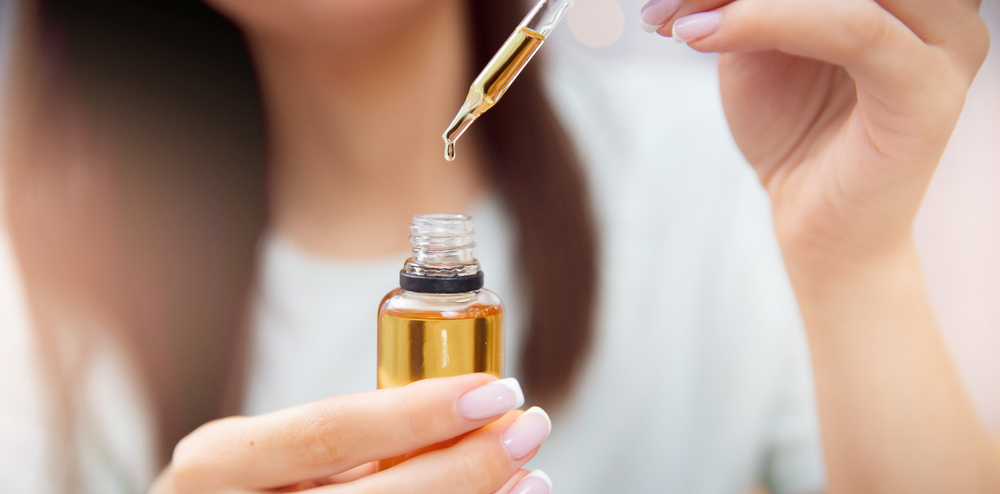While you may not like the appearance of varicose or spider veins, they are usually painless in the early stages but can cause discomfort or more significant symptoms if left untreated. Due to their undesirable appearance on the legs, people are often looking for “natural” treatments for varicose veins, hoping to get rid of them once and for all.
But, while some natural treatments may temporarily reduce the appearance of veins, varicose veins are caused by weakened blood vessels that lead to the blood leaking in the wrong direction and pooling. This causes the veins to twist and bulge from the pressure. To truly “fix” them, medical treatment is required.
But there is still a lot of buzz around natural treatments. The latest of these touted natural treatments is castor oil, made popular on social media platforms. But does castor oil help varicose veins? Or is it just another unfounded claim?
The Buzz Around Castor Oil for Varicose Veins
Influencers on social media are buzzing about castor oil and varicose veins, and there are dozens of videos about how to use castor oil for varicose veins. The claim is that castor oil can “cure” varicose veins or significantly reduce their appearance. While castor oil may have some anti-inflammatory and moisturizing benefits for your skin, it cannot cure varicose veins.
Varicose veins are caused by weak blood vessels inside your body. Therefore they cannot be treated with topical medications, oils, lotions, or other treatments. Rather, the weak blood vessels need to be treated to reduce their appearance permanently.
When it comes to varicose veins, other than medical treatments, your only option is to prevent them from getting worse. If you are predisposed to varicose veins, prevention measures include exercising regularly, maintaining a healthy weight, following a healthy diet, wearing compression stockings, and avoiding sitting or standing for long periods.
However, beyond temporarily improving the appearance of your skin, topical treatments like castor oil for varicose veins will not help improve them permanently.
Understanding the Benefits: Why Castor Oil
Castor oil comes from the seeds of the Ricinus communis plant and has a long history of medicinal use. It is best known as an FDA-approved laxative, but too much castor oil can cause abdominal pain and other gastrointestinal issues.
Castor oil is also commonly found in beauty products as a moisturizer. It’s a rich source of ricinoleic acid, an oil that can moisturize the skin and may have mild pain-relieving abilities. Ricinoleic acid may also have anti-inflammatory benefits, promoting skin healing. The anti-inflammatory or wound-healing benefits may be why people believe it can help cure or reduce the appearance of varicose veins.
While it may appear that varicose veins are a skin problem, since they appear on the surface, the damage is deeper. Therefore, applying a topical moisturizer like castor oil may improve the appearance of your skin in the area but won’t fix the underlying problem.
How to Effectively Apply Castor Oil for Best Results
If you want to use castor oil for general skin health, there are a few ways to use it effectively. Always start by doing a patch test to ensure you are not allergic to it. Apply it to a small area of the skin and wait for 30-60 minutes to ensure you don’t react to the oil.
Once you know you are not allergic to it, you can use it regularly as a skin moisturizer or blend it with other types of oils or lotions.
Castor oil may be better absorbed when it is warm, so consider running the oil under warm water before application. The warmed oil can also help soothe sore muscles when used for a gentle self-massage, which can help promote circulation in the legs if you have varicose veins.
What the Research and Experts Say About Castor Oil
There is limited research on castor oil and the treatment of varicose veins. One 2021 study evaluated the antioxidant content of several different types of oils to determine whether they would be a valuable addition to topical treatments for varicose veins. The study found that wheat germ and pumpkin seed oil were the most effective, whereas castor oil was not as rich in antioxidants.
Dr. Sivia, one of our board-certified vascular surgeons, said, “While castor oil can be used to moisturize skin and may have some anti-inflammatory benefits, unfortunately, it won’t completely get rid of varicose veins. Always be wary of ‘natural’ treatments that claim to cure any medical condition. Check with your doctor before trying any trends you see on the internet. Your doctor is the best source of accurate advice tailored to your individual medical needs.”
Enhancing Treatment: Additional Tips for Varicose Vein Relief
If you experience symptoms related to varicose veins, such as heaviness, pain, or itching, rather than trying to treat them yourself, consider seeking the help of a vascular surgeon, like our team at Empire Vein and Vascular Specialists.
Our board-certified physicians use non-invasive technology, such as Venaseal™️, to help improve the appearance and symptoms related to varicose veins. Non-invasive treatments can seal the affected veins, improving the appearance of veins permanently with little to no downtime. Most procedures take less than 30 minutes, so you are on your way as soon as possible. Empire Vein and Vascular Specialists also accept most insurance, including IEHP.
To get started with learning more about how we can help, book a free screening with our team.
References:
- https://www.ncbi.nlm.nih.gov/books/NBK551626/
- https://www.ncbi.nlm.nih.gov/pmc/articles/PMC8290927/
- https://www.researchgate.net/publication/350803055_Characterization_of_some_vegetable_oils_in_order_to_use_them_in_the_treatment_of_the_varicose_veins
- https://www.ncbi.nlm.nih.gov/pmc/articles/PMC6435308/
